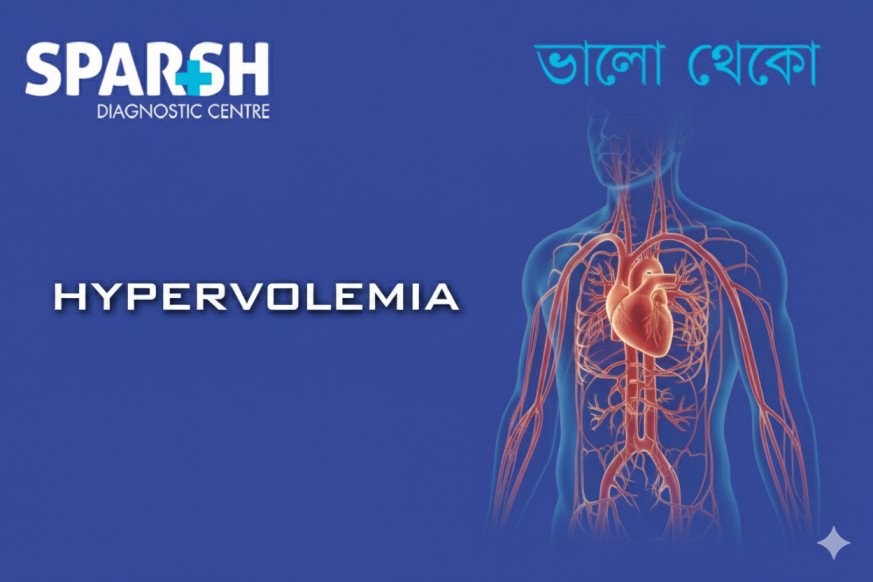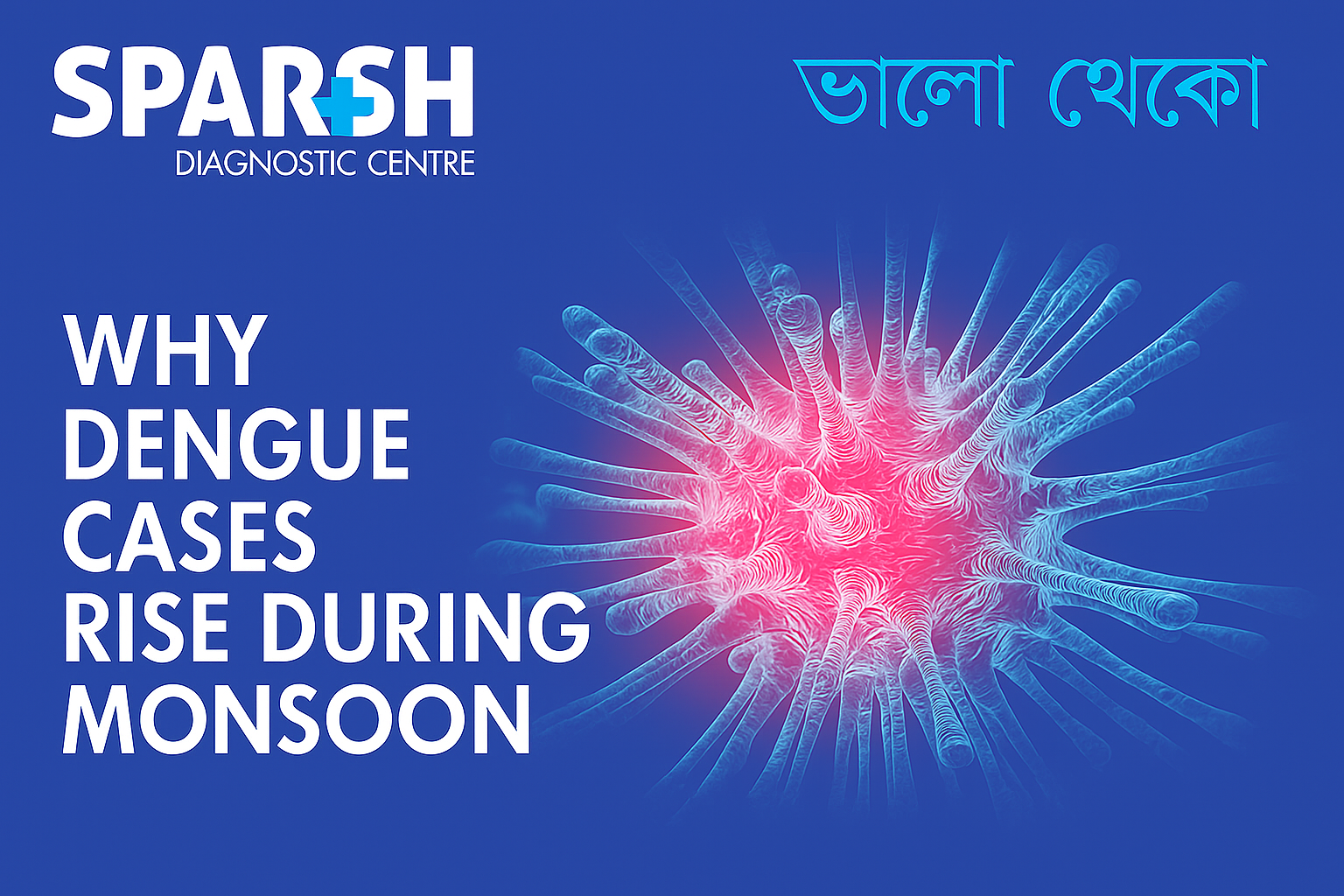Your body depends on the right balance of fluids to function properly. However, when the body retains too much water and sodium, it leads to a condition called Hypervolemia, also known as fluid overload. This imbalance can affect blood pressure, strain the heart, and cause swelling in different parts of the body.
Although mild fluid retention can be temporary, severe hypervolemia can indicate underlying problems such as heart failure, kidney disease, or liver cirrhosis — requiring medical attention and diagnostic evaluation.
In this blog, we’ll explore the causes, symptoms, diagnostic methods, and treatment options for hypervolemia, along with prevention tips and commonly asked questions.
What is Hypervolemia?
Hypervolemia is a medical condition where there is an excessive volume of fluid (mainly water and sodium) in the bloodstream. This increased blood volume can cause swelling (edema), high blood pressure, and stress on the heart and kidneys.
It is often associated with diseases that disrupt the body’s ability to regulate sodium and water balance, such as:
Fluid overload can develop gradually or suddenly, depending on the underlying cause and the body’s response.
Causes of Hypervolemia
The causes of hypervolemia can be divided into medical conditions, iatrogenic (treatment-related) factors, and dietary/lifestyle contributors.
1. Medical Causes
Heart Failure: When the heart cannot pump efficiently, blood backs up into the veins, causing fluid accumulation in tissues and lungs.
Kidney Disease: Damaged kidneys are unable to excrete excess sodium and water, leading to fluid retention.
Liver Cirrhosis: The liver’s reduced ability to produce proteins causes fluid leakage from blood vessels into tissues.
Hormonal Imbalances: Overproduction of aldosterone or ADH (antidiuretic hormone) increases water and sodium reabsorption.
2. Iatrogenic Causes (Medical Treatment-Induced)
Intravenous (IV) Fluid Therapy: Over-administration of IV fluids during hospital treatment can lead to hypervolemia, especially in patients with existing heart or kidney problems.
Blood Transfusions: Multiple transfusions in a short time can increase blood volume significantly.
Medications: Certain drugs like corticosteroids and NSAIDs may cause fluid retention.
3. Dietary and Lifestyle Factors
High Sodium Intake: Consuming too much salt causes the body to retain water.
Sedentary Lifestyle: Lack of physical activity can reduce circulation and promote fluid accumulation in the lower limbs.
Excessive Water Intake: Although rare, drinking excessive water can cause dilutional hypervolemia.
Symptoms of Hypervolemia
The symptoms of hypervolemia depend on how much extra fluid the body retains and where it accumulates.
Common symptoms include:
Swelling (Edema): Noticeable in legs, ankles, feet, hands, or face.
Weight Gain: Rapid, unexplained weight gain over a few days due to water retention.
Shortness of Breath: Fluid buildup in the lungs (pulmonary edema) can cause difficulty breathing.
High Blood Pressure: Increased blood volume raises blood pressure levels.
Abdominal Swelling: Fluid accumulation in the abdomen (ascites) due to liver or kidney problems.
Fatigue and Weakness: Caused by poor oxygen delivery and strain on the heart.
Crackling Sounds in Lungs: Heard through a stethoscope due to fluid presence in lung air sacs.
If left untreated, hypervolemia can progress to serious complications such as heart failure, pulmonary edema, and hypertension.
How is Hypervolemia Diagnosed?
Early and accurate diagnosis of hypervolemia is vital for effective treatment. At Sparsh Diagnostic Centre, specialized diagnostic tools help determine the underlying cause and the severity of the fluid overload.
1. Physical Examination
A doctor checks for:
Swelling in limbs or face
Elevated jugular venous pressure
Rapid weight changes
Abnormal lung or heart sounds
2. Blood Tests
Kidney Function Tests (BUN, Creatinine): Evaluates renal performance.
Liver Function Tests: Detects liver abnormalities causing fluid imbalance.
BNP (B-type Natriuretic Peptide): Elevated in heart failure-related fluid overload.
3. Urine Tests
Measures sodium concentration and output to assess kidney response.
4. Imaging Tests
Chest X-ray: Reveals fluid in the lungs.
Echocardiogram: Assesses heart function and blood flow.
Ultrasound (Abdomen or Kidney): Detects ascites or kidney abnormalities.
5. Weight Monitoring
Tracking weight daily helps identify fluid retention trends, especially in patients with chronic conditions.
Treatment of Hypervolemia
The goal of hypervolemia treatment is to remove excess fluid, correct the underlying cause, and restore fluid balance.
1. Diuretics (Water Pills)
These medications increase urine output and help eliminate excess water and sodium.
Common types: Furosemide, Bumetanide, Spironolactone
2. Fluid and Salt Restriction
Limiting water and salt intake prevents further fluid buildup.
Sodium intake is usually restricted to less than 2 grams per day.
Fluid intake may be limited based on the severity of the condition.
3. Dialysis
For patients with advanced kidney failure, hemodialysis or peritoneal dialysis removes extra fluid and waste from the blood.
4. Treating the Underlying Cause
Heart failure: Managed with medications like ACE inhibitors or beta-blockers.
Liver disease: Treated with dietary changes, medications, or, in severe cases, liver transplant.
Hormonal imbalance: Managed with endocrine therapy.
5. Oxygen Therapy
For patients with pulmonary edema and breathing difficulty, oxygen supplementation helps maintain oxygen levels.
6. Monitoring and Follow-up
Regular follow-ups with diagnostic imaging and lab tests are essential to prevent recurrence and monitor treatment progress.
Complications of Hypervolemia
If untreated, hypervolemia can lead to life-threatening complications:
Congestive Heart Failure
Pulmonary Edema
Hypertension
Organ Dysfunction (especially kidneys and liver)
Early detection and timely treatment can prevent these complications and improve quality of life.
Prevention of Hypervolemia
While not all causes can be prevented, adopting a few lifestyle and medical precautions can help reduce the risk:
Monitor Fluid and Sodium Intake
Avoid processed and high-salt foods.Regular Health Check-ups
Get kidney, heart, and liver functions tested periodically.Stay Physically Active
Exercise improves circulation and prevents swelling.Manage Chronic Conditions
Adhere to treatment plans for heart, liver, or kidney diseases.Track Daily Weight
Sudden weight gain could indicate fluid retention.Avoid Unnecessary IV Fluids
Ensure medical supervision for any IV therapy or transfusion.
When to See a Doctor
Seek medical attention immediately if you experience:
Sudden swelling in feet or abdomen
Shortness of breath
Chest pain
Rapid weight gain
Fatigue and confusion
Prompt diagnosis can prevent severe complications and ensure effective management.
Hypervolemia vs Hypovolemia
| Feature | Hypervolemia | Hypovolemia |
|---|---|---|
| Definition | Excess fluid volume in the body | Low fluid volume in the body |
| Common Causes | Heart failure, kidney disease, liver cirrhosis | Dehydration, bleeding, vomiting, diarrhea |
| Blood Pressure | Elevated | Low |
| Primary Symptoms | Swelling, shortness of breath, high BP | Dizziness, thirst, low BP |
| Treatment | Diuretics, fluid restriction | Fluid replacement, electrolyte therapy |
Understanding the difference helps guide correct diagnosis and treatment.
Prognosis
The outlook for hypervolemia depends on the underlying cause and response to treatment. With early diagnosis and proper management, patients can maintain normal fluid balance and avoid complications.
However, if it is secondary to chronic conditions like heart failure or kidney disease, ongoing monitoring and treatment adjustments are essential to prevent recurrence.
FAQ Section
1. What is the main cause of hypervolemia?
The main causes are heart failure, kidney dysfunction, and liver cirrhosis, which prevent the body from excreting excess water and sodium.
2. Can hypervolemia be life-threatening?
Yes. Severe fluid overload can lead to pulmonary edema, heart failure, and respiratory distress, which are life-threatening without prompt treatment.
3. How is hypervolemia treated?
Treatment involves diuretics, fluid restriction, and managing the underlying cause such as heart or kidney disease.
4. What foods should be avoided with hypervolemia?
Avoid foods high in sodium such as processed meats, pickles, soups, chips, and fast foods.
5. Can hypervolemia be detected through blood tests?
Yes. Blood tests can reveal electrolyte imbalances, renal dysfunction, and hormonal abnormalities associated with fluid overload.
6. Is hypervolemia the same as edema?
Not exactly. Edema is the visible swelling caused by excess fluid in tissues, while hypervolemia refers to the overall increase in blood volume that may cause edema.
7. How long does it take to recover from hypervolemia?
Recovery depends on the severity and underlying cause. Mild cases may improve within days, while chronic cases require long-term management.
8. How can I prevent fluid overload at home?
Limit salt intake, monitor fluid consumption, weigh yourself daily, and consult your doctor regularly for medication adjustments.
9. Is hypervolemia common in hospitalized patients?
Yes. It can occur in hospitalized patients receiving IV fluids or blood transfusions, especially those with heart or kidney issues.
10. When should I visit a diagnostic centre for hypervolemia?
If you notice sudden swelling, weight gain, or breathing difficulties, visit a diagnostic centre like Sparsh Diagnostic Centre for tests to determine the cause and start treatment early.
Hypervolemia is a serious yet manageable condition if identified early. It often reflects an imbalance in the body’s ability to regulate fluid and sodium levels due to underlying diseases like heart, kidney, or liver disorders.
At Sparsh Diagnostic Centre, advanced diagnostic tools and expert consultation help detect fluid imbalances early, ensuring effective and personalized treatment.
If you or a loved one experience persistent swelling or unexplained weight gain, don’t ignore the signs — seek timely evaluation.
To consult a Doctor at Sparsh Diagnostic Centre, call our helpline number 9830117733 or visit our online booking link.
#BhaloTheko
Disclaimer:
No content on this site, regardless of date, should ever be used as a substitute for direct medical advice from your doctor or other qualified clinician.

![]()





